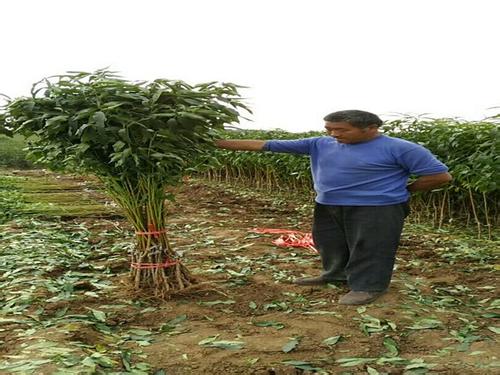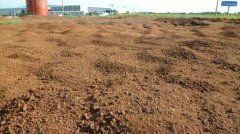What is organic matter in fertilizer? What are the types of organic matter in fertilizer?
Do you know the selection and application technology of organic matter fertilizer? if you don't know, then take a look at this article and understand it. Only in this way can we fertilize the crops better.

Selection according to soil conditions
According to the analysis of soil organic matter content in soil sampling and improvement field, it can be determined that if the soil organic matter content is less than 1%, the organic fertilizer rich in organic matter should be selected and its price should be considered before it can be applied in large quantities. If the soil organic matter content is more than 3%, it should be applied appropriately except in the gravel land, in terms of economic benefits. Planting green manure crops during fallow and leisure is the most economical and effective method.
It is necessary to understand the characteristics of organic fertilizer.
The organic fertilizers made from composting and ripening can be divided into two types: easy decomposition type and difficult decomposition type. The former is mainly composed of livestock manure, animal waste and oil meal, with less fiber and high contents of nitrogen, phosphorus and potassium. Its nutrients are decomposed and released quickly in the soil. The latter is made of rice, bark, sawdust and crop residues, which is rich in fiber, but has less nitrogen, phosphorus and potassium, and decomposes slowly in soil, so it is suitable for improving soil physiology and promoting soil microbial activity. so that the roots of crops have a good growth environment.
According to crop types and fertilization characteristics
The crops with larger plants and longer growth period need more fertilizer, and the organic fertilizer applied as base fertilizer for short-term crops should choose those with high maturity, and the nutrient supply, especially nitrogen fertilizer, should be adequate. If long-term crops should pay attention to the improvement of soil properties, promote root activation and cooperate with various stages of growth and differentiation, and regulate nutrient supply.
According to the topographic and environmental conditions
The application of organic matter fertilizer should carry out three-dimensional fertilization, dig ditches and holes, and backfill the soil. If the cultivated land is gravel soil due to manpower can not dig ditches to apply, it is better to choose bulk or granular organic fertilizer, liquid organic fertilizer can be applied by sprinkler irrigation.
Pay attention to quality
If organic matter fertilizer is not fermented, it is easy to continue to ferment in the soil after application, resulting in substances harmful to crop roots and breeding pathogens. Organic fertilizers sold in the market should pay attention to the content of heavy metals, such as livestock manure often come from feed additives, such as long-term application of copper and zinc will cause the accumulation of heavy metals, should be carefully selected.
Cooperate with water management
Sprinkler irrigation facilities should be set up in the orchard to timely adjust the supply of water so as to maintain a suitable state of soil moisture, which is conducive to microbial activity, decompose compost and release nutrients, benefit crop roots to absorb nutrients, and improve the utilization rate of compost nutrients.
- Prev

Is the best organic fertilizer raw material farm organic fertilizer or commercial organic fertilizer? What are the raw materials of organic fertilizer
What is the difference between farm organic fertilizer and commercial organic fertilizer? Due to the different composition and decomposition of organic matter materials, it is necessary to pay attention to the advantages and disadvantages of various organic matter materials, truncate each other and make the most appropriate deployment and application.
- Next

How to use compost: what are the benefits of composting?
Do you know the benefits of composting? The source of nutrients for organic crops depends entirely on the use of compost under the principle of no use of chemical fertilizers. The nutrient content of compost, in addition to a small amount of rapidly available inorganic nutrients, is large.
Related
- Fuxing push coffee new agricultural production and marketing class: lack of small-scale processing plants
- Jujube rice field leisure farm deep ploughing Yilan for five years to create a space for organic food and play
- Nongyu Farm-A trial of organic papaya for brave women with advanced technology
- Four points for attention in the prevention and control of diseases and insect pests of edible fungi
- How to add nutrient solution to Edible Fungi
- Is there any good way to control edible fungus mites?
- Open Inoculation Technology of Edible Fungi
- Is there any clever way to use fertilizer for edible fungus in winter?
- What agents are used to kill the pathogens of edible fungi in the mushroom shed?
- Rapid drying of Edible Fungi

